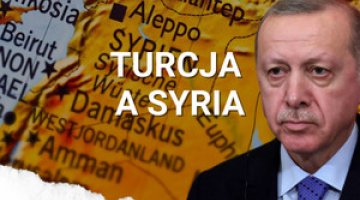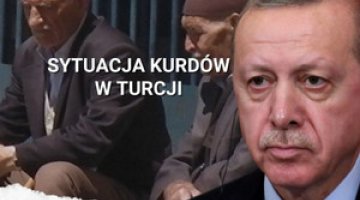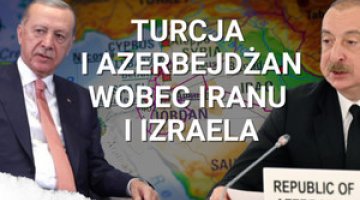Turkey’s stance on the escalation of the conflict in Iraq and Syria
The military clashes in the areas of Syria and Iraq near the Turkish border intensified last week. Firstly, the so called Islamic State (IS) launched an offensive against the informal Kurdish autonomy (“Rojava”) near the town of Kobani in northern Syria. This led to 130,000 Kurds crossing the border to seek refuge in Turkey. Secondly, on 22 September, the United States and its Arab allies decided to launch air strikes against ISIS and other jihadist targets in Syria, widening the military campaign which had previously been waged only in Iraq.
Meanwhile, Islamic State has released 49 hostages who had been captured at the Turkish consulate in Mosul in June this year. The circumstances of the release of the hostages have not been revealed by the government. President Erdogan denied talk that a ransom had been paid and announced that the hostages had been freed as a result of “political and diplomatic negotiations with IS.” He also added that this would widen the Turkish government’s room for manoeuvre to pursue an active diplomacy towards the region (representatives of the Turkish government had previously hinted that the hostage situation prevented them from conducting an active policy with regard to IS).
Expansion of IS has become one of the greatest challenges for Turkey. It has generated genuine problems in the country by contributing to a large-scale influx of refugees, stoking tensions with the Kurds, destabilising border areas, and by posing a potential threat of direct attacks on Turkish targets. Ankara will find it difficult to continue its very cautious and so far relatively effective policy with regard to IS (the release of hostages), given the rapidly developing expansion of the organisation in Syria and the escalation of tensions across the entire region.
The refugee issue
130,000 refugees crossed into Turkey over three days. This posed Turkey an unprecedented logistics challenge, which it is unlikely to be able to handle. It is at present difficult to estimate how long these refugees will remain in Turkey and whether this large-scale influx of refugees will prove to be a one-off. This will probably depend on the situation in the battlefields in northern Syria, and also on the success of the US-led operation against IS. If IS forces are weakened to a significant extent, the Kurdish refugees will most likely return home. However, new waves of Kurdish refugees or of IS militants seeking shelter from air strikes cannot be ruled out. Turkey already has a serious problem with 1.3 million Syrian refugees resident in its territory, and the recent exodus of Kurds from Rojava has only worsened this problem. Aid to Syrians is more than Turkey can afford; the costs it generates are huge both in financial terms (according to the government’s estimates, the upkeep of the refugee camps has cost it US$4 billion to date) and social terms (ever more frequent tensions between the refugees and Turkish citizens).
The tensions between Ankara and the Kurds
The intensification of fighting between Iraqi and Syrian Kurds on the one side and Islamic State on the other has been accompanied by a growing tension between Turkey and Turkish, Syrian and Iraqi Kurds. This is an effect of the growing conviction among Kurds that Ankara has been offering logistic and military support to Islamic State. Kurds believe these allegations were confirmed by passive stance Turkey took on the IS campaign against Iraqi Kurdistan launched in June this year and also during the recent offensive against Rojava, which is controlled by the PKK (Kurdistan Workers’ Party, a terrorist organisation active mostly in Turkey). For Ankara this means the risk that it will have less influence on the policy of Iraqi Kurdistan, which has thus far been its key ally in the region, and also the danger of an escalation of the Kurdish conflict inside Turkey.
The clashes between Turkish forces and the local Turkish population were the first sign of this. Turks from the region insisted that refugees from Syrian Kurdistan be let into Turkey and that armed PKK militants be allowed to cross the Syrian border to defend Kurdish autonomy against Islamic State. The protesting Kurds were backed by the Kurdish Democratic Regions Party (DBP), which has representatives in the Turkish parliament; some DBP members have joined in the PKK’s appeal for the mobilisation of Turkish Kurds and the fight against IS.
The terrorism threat
IS’s activity is an ever growing risk for Turkey; it has succeeded in its regional expansion over the past few months, and its militants are present also in Turkey. IS has not waged open war against Ankara, but taking 49 employees and Turkish citizens hostage at the Mosul consulate in June this year and armed incidents between its militants and Turkey’s police and gendarmerie serve as proof that this organisation is ready for and capable of launching a large-scale action against Turkey.
The release of the hostages has removed the spectre of a political and PR defeat for Ankara which would have ensued if an execution had been carried out. However, this has not deprived Islamic State of the possibility of hurting Turkey with retaliatory actions should Ankara assume a hostile stance on IS, especially given the fact that more Turkish citizens have recently been recruited as IS militants (according to recent alarmist estimates, thousands of militants from Turkey have joined IS). Therefore, it should not be expected that Ankara will openly join the US-led military campaign against the jihadists from IS. Most likely, it will make attempts to discretely restrict IS’s room for manoeuvre in its actions against Turkey by reinforcing the control of its southern borders, tightening its grip on fuel smuggling from Syria (a source of income for IS) and other soft actions. However, alongside this, in order to diminish the risk of confrontation with IS, Turkey will continue to make efforts to develop a way for a peaceful coexistence with it. It may be assumed that in seeking to achieve this, it will maintain behind-the-scenes contacts with Islamic State.
Possible developments
Despite the relatively restrained policy which Turkey has conducted with regard to the Middle East for the past two years, it still faces serious threats resulting from the conflicts in Syria and Iraq. These threats are on many levels: they concern security, the Kurdish issue, social stability and others. The policy of minimising the losses through the avoidance of direct engagement in conflicts does not guarantee Turkey security. The potential risk of aggression from the unpredictable and extremely destructive Islamic State poses a particular threat to Turkey. The scale of this threat has made Ankara embark upon a flexible policy, which includes dealings with IS. In turn, this is having a detrimental effect on its relations with the West, which expects decisive actions taken against IS.




